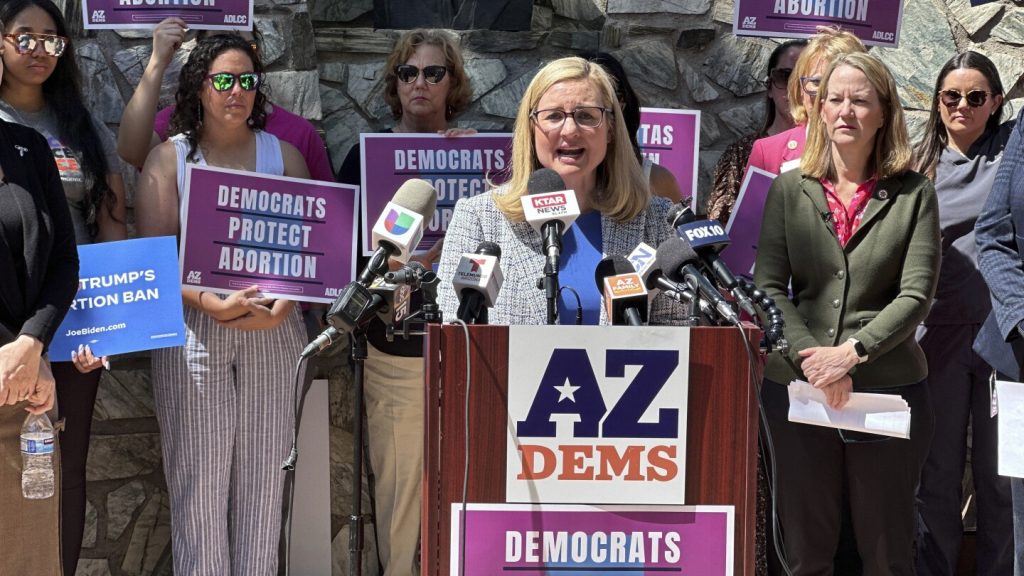The Arizona Supreme Court recently upheld a near-total ban on abortion with no exceptions for rape or incest, citing a 1864 provision in the Howell Code that criminalized the administering of any medicinal substances to procure a miscarriage. This decision has sparked controversy and criticism, with some calling it a cruel and archaic law resurrected from history. The law, originally created during a time of limited scientific knowledge and when women did not have the right to vote, is now set to become one of the strictest abortion bans in the country, affecting the presidential and U.S. Senate races in Arizona.
The resurgence of century-old abortion restrictions across the United States, following the overturning of Roe v. Wade, has brought to light the lasting influence of these laws on current policies. States like Arizona have retained their pre-Roe laws, known as trigger laws, which would go into effect if Roe were overturned. These laws tend to be harsher, lack exceptions for rape and incest, and impose severe penalties on providers. Legal experts argue that these laws, enacted by all-male legislatures in times when scientific knowledge was limited, have a significant impact on women’s lives in the present day.
In Michigan, a 1931 abortion law was recently ruled unconstitutional and repealed, while other states like New Mexico and Wisconsin are facing legal challenges related to old abortion bans. The Comstock Act, originally passed in 1873 to restrict the mailing of contraceptives and abortion-related substances, is now being revived by anti-abortion groups to block the distribution of the abortion pill mifepristone nationwide. This has raised concerns among abortion rights advocates about the potential national implications of reviving long-dormant laws related to abortion and reproductive rights.
With the U.S. Supreme Court’s recent ruling in Dobbs v. Jackson Women’s Health Organization overturning Roe v. Wade, the enforcement of old abortion laws is becoming more widespread. Several states have already taken steps to repeal unconstitutional abortion bans and enshrine abortion rights in their constitutions. The Arizona Supreme Court’s decision to uphold the 1864 abortion provision underscores the ongoing debates and legal battles surrounding reproductive rights in the United States, highlighting the complexity of navigating historical laws in a modern context.
While some states have successfully repealed or challenged century-old abortion restrictions, others are facing legal battles to protect reproductive rights. The intersection of historical laws and current policies has become a focal point in the national conversation about abortion access. As anti-abortion groups seek to revive old laws like the Comstock Act to restrict abortion services nationwide, the future of reproductive rights remains uncertain. The resurgence of long-dormant laws related to abortion and contraception serves as a stark reminder of the ongoing legal challenges and activism surrounding reproductive health in America.


